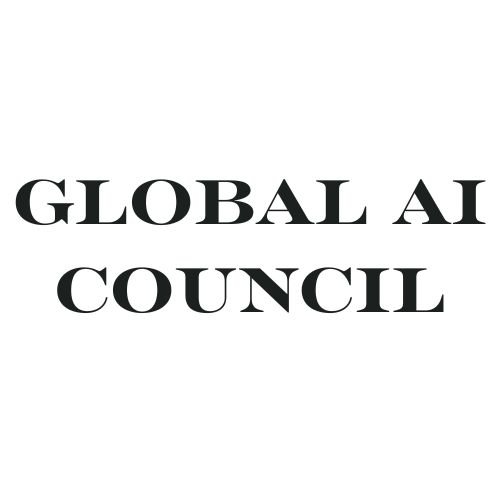Global AI Council at Davos: Building Bridges and Expanding Horizons
Each year, Davos becomes the epicenter for global dialogue—where world leaders, innovators, and visionaries converge to discuss the most pressing challenges and opportunities facing humanity. Although the Global AI Council did not host its own session this year, our presence at Davos proved invaluable. Through high-level networking, strategic discussions, and forging new partnerships, we took significant steps forward in expanding our reach and strengthening our impact.
1. Navigating Davos Without a Formal Session
Without an official Global AI Council panel or keynote, one might think our participation would be limited. However, the diversity of attendees at Davos provided a unique opportunity for impromptu conversations that often evolve into fruitful collaborations. Rather than focusing on orchestrating a single event, our strategy was to connect with key stakeholders during various forums, roundtables, and social gatherings. This approach allowed us to engage with potential partners more organically, ensuring each conversation was both meaningful and productive.
2. Exploring New Frontiers: India, Sweden, and Egypt
One of the highlights of our week involved discussions around expanding the Global AI Council’s presence in three regions brimming with potential:
India: As one of the fastest-growing technology hubs globally, India offers a vibrant ecosystem of AI startups, established tech companies, and robust government initiatives. Establishing a local chapter could catalyze deeper collaboration between industry leaders, policy advocates, and emerging AI talent.
Sweden: Known for its strong emphasis on innovation, equality, and sustainability, Sweden aligns well with the Council’s principles. A potential Swedish chapter would not only foster more inclusive AI development but also tap into cutting-edge Scandinavian research in machine learning and data ethics.
Egypt: A gateway to the MENA region, Egypt’s thriving entrepreneurial scene and government-led digital transformation efforts create an ideal environment for an AI-focused network. Establishing a foothold here promises to amplify AI’s role in economic development and broader social impact.
While these plans are still in motion, preliminary conversations at Davos were promising. Government officials, technology leaders, and academic representatives all expressed enthusiasm for a closer partnership with the Global AI Council.
3. Recruiting New Ambassadors
Beyond geographical expansion, our mission to nurture a global community of AI advocates took an exciting leap forward. We successfully recruited new ambassadors who bring diverse backgrounds and expertise—from policymakers and entrepreneurs to researchers and social innovators. Our ambassadors serve as local champions, helping to:
Facilitate Dialogue: Hosting meetups, webinars, and workshops to educate communities about responsible AI use.
Form Alliances: Connecting local entities—startups, universities, government agencies—to the Global AI Council’s international network.
Promote Ethical Standards: Serving as advocates for transparent, equitable AI governance tailored to regional needs and cultural contexts.
These fresh perspectives and networks of ambassadors will be instrumental in ensuring that the Council remains both globally consistent and locally relevant.
4. Networking Highlights and Takeaways
Davos is known for its serendipitous encounters—the chance conversations in hallways, receptions, and roundtables that can spark new initiatives or reframe existing challenges. Some notable themes that surfaced include:
AI for Climate Action: Multiple conversations centered on how AI can optimize energy consumption, predict natural disasters, and support sustainable agriculture—reinforcing the Council’s commitment to leveraging tech for global good.
Upskilling and Education: In many networking sessions, both private and public sector leaders emphasized the urgent need for re-skilling the workforce, particularly in AI-driven industries.
Collaborative Governance: Policy and regulatory frameworks remain a hot topic, with calls for multi-stakeholder models where businesses, governments, academia, and civil society co-create guidelines.
5. Looking Ahead
Our time at Davos reaffirmed the Global AI Council’s vision: AI should be developed and deployed in a manner that benefits everyone, everywhere. While we didn’t hold a formal session, the conversations we started—and the partnerships we began to shape—will help guide the Council in the months and years ahead. Our next steps include:
Formalizing Regional Chapters: Moving forward with the practical steps to open chapters in India, Sweden, and Egypt.
Expanding the Ambassador Network: Offering training, resources, and collaboration platforms to our newly recruited ambassadors.
Aligning with Global Initiatives: Building on dialogues from Davos to support broader international efforts in AI governance, research, and social impact.
Conclusion
Davos served as a powerful reminder that innovation is never confined to a single conversation or even a single event. It is the multitude of interactions—across cultures, industries, and ideologies—that drives meaningful change. By leveraging our presence to connect with key stakeholders, explore new regions, and welcome ambassadors into the fold, the Global AI Council took significant steps toward a more inclusive and ethical AI landscape. We’re excited for the journey ahead and remain committed to ensuring that technology serves humanity—never the other way around.
